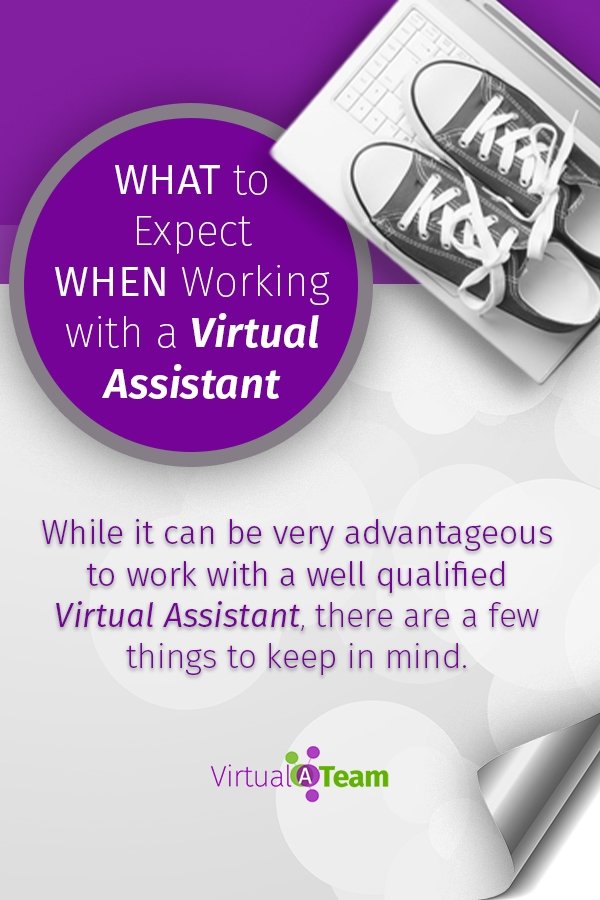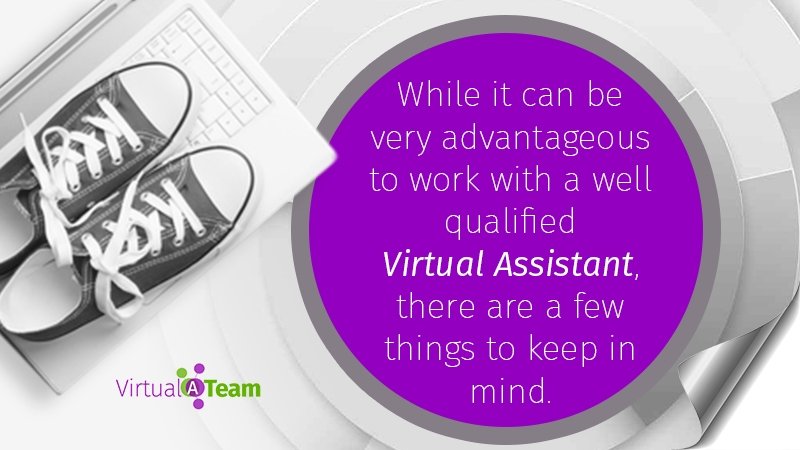One of the challenges to delegation is the big unknown. If you are wondering what to expect when working with a VA, here are a few pointers.
First of all, what is a VA? A VA, or virtual assistant, is an individual who works remotely on tasks and projects you have assigned to them.
Aren't they just an employee that isn't in-house?
Working with a VA is often very different than having an employee. Here are a few of the key differences:
- Work their own hours - A VA often likes to work evening or late night hours. Or sometimes she just likes to split her schedule up throughout the day. Rather than putting in a solid 8 hours and then going home, VA's work on their own schedule.
- Less training - When you working with a VA, you often won't need to "train" them on the process. In fact, that's part of the idea of using a VA. All you should have to do is convey the desired outcome and a good VA will figure out the process and complete the work with little direction.
- Specific Expertise - Most VA's will have one or two programs or skills that they are very good at and focus on using those skills. An employee may have a more generalized skill set.

What are the limitations of working with a VA?
While it can be very advantageous to work with a well qualified VA, here are a few things to keep in mind:
- You aren't their only client - A good virtual assistant will have multiple clients. That means they often are not able to get your rush job done when you need it done. You don't get to pick their priorities for them like you can with an employee.
- Hiring a VA is like hiring a good employee - It can sometimes take time to find the right fit. Whether it's communication or natural skills, you both need to be a complement to one another and that doesn't always happen on the first try. Don't give up.
- This isn't Plug & Play - While you may not have to do as much training with a virtual assistant as you do with an employee, they aren't able to jump right in and take over your detailed work without some set up on your part either. Get your lists and systems together so you can help them help you.
- Don't expect a Jack-(or Jill)-of-all-trades - As mentioned above, most VA's have an area of expertise. Work with multiple virtual assistants so that you can get the job done by the best person for the job.
- A VA is not a business manager or consultant - Most virtual assistants do not have a lot of experience in business and aren't the best person on advising you in how best to manage or grow your business. They are there to provide administrative or specialty work only.
Download our Ultimate Guide to Delegating for More Tips & Tools on How to Delegate as a Solopreneur
What's the secret to working with a VA?
There are a few key things you can do to improve the process:
- Communicate clearly - If the written word isn't your best way to communicate, send verbal messages instead. Or, better yet, schedule a weekly call to share new tasks and projects.
- Give as much detail as possible - Usernames and passwords should all be verified before they are shared (or use a system like Lastpass that allows you to share without full access). When is the deadline? Is there anything specific that you need? What are the goals?
- Review and provide feedback - Working with a new virtual assistant is a lot like courting a significant other. It takes a little time to get to know one another. With each assignment, be sure to review the work and provide the VA with your feedback. What worked? What didn't? Are there any little changes you'd like to see for the next project?
- Delegate, don't abdicate - It's up to you to let your virtual assistant know what level of communication is appropriate. You may want to touch base weekly or even daily with a simple email. Just remember, if you don't know what your VA is doing, you may get unwanted surprises.
- No need to micromanage - On the other extreme, don't manage every aspect of the process. They are independent contractors, allow them to do what you are paying them to do.
Final Words
Taking your time to find, hire and manage the right virtual assistant or team of assistants will result in the best returns on your investment. You could feasibly save 5 to 30 hours a week that will free you up to work on growing your business or even spending more time doing what you love.
If you are looking to hire a virtual assistant and would like help with the entire process, consider checking out our Virtual A Team. We've developed a unique way to overcome all of the obstacles to working with a virtual team.
Did you find this useful? Please share.

